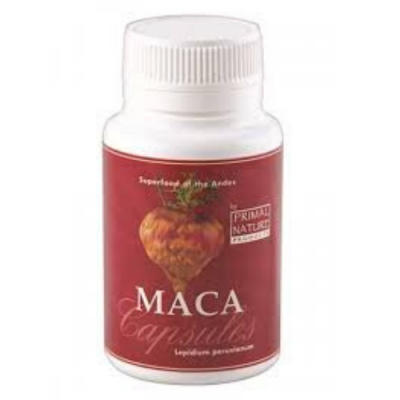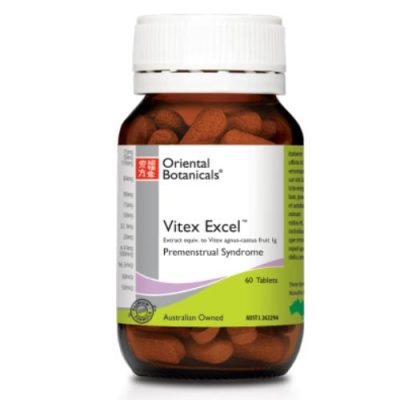fertility, healthy hormones
WHAT A NORMAL PERIOD SHOULD LOOK LIKE
Considering around half the population has them, it is surprising how many people are actually in the dark as to what a normal period should be. Your period and menstrual cycle are a window into your health. Instead of thinking of your period as a burden, think of it as a fabulous educational tool that gives you tangible evidence as to how healthy your whole body is at that time.
YOUR PERIOD SHOULD NOT BE ‘LIFE ALTERING’
Let’s start here. Assuming you menstruate 12 times a year for forty years and for every period you have a day that is essentially written off due to pain and feeling unwell, you will lose over one year of you life to your period! This is NOT normal and not ok either.
When we say it should not alter your life, we mean it should not write off days in your life. Yes you are going to bleed, so that in itself is life altering, but that just requires a small adjustment. Your period should not change the way you operate your life.
There are many aspects to your period that could potentially alter your life. When your cycle is balanced and your period is normal, your life is much easier. To ensure a normal period the following need to be regulated or reduced:
- Period pain.
- Lethargy associated with your period.
- Normal blood flow.
- Correct cycle length.
- Premenstrual symptoms such as moodiness, anxiety, mild depression, bloating, tender breasts and headaches.
PERIOD PAIN
The pain that can accompany your period is usually the life altering aspect. So what pain is normal? Essentially no pain is normal. However, a mild pain just before the commencement of bleeding and at the very beginning, that lasts a few hours is normal. This relates to your uterus contracting to release the lining to begin your menstrual flow. Pain that requires pain killers and heat packs should not be considered a normal part of being a woman. Pain that is debilitating is a sign that your body is not at its absolute optimum health.
DIFFERENT TYPES OF PAIN AND WHAT THEY MEAN
The types of pain that are experienced can be quite informative.
1. PAIN BEFORE A PERIOD BEGINS:
Ideally you should only experience very slight pain before a period begins for about 2 hrs. Anything more than this is a sign of an imbalance.
Wholistic Diagnosis:
Stagnation and impaired circulation. Essentially the body is having trouble moving the blood, causing pain.
Significant, prolonged pain prior to bleeding can be a sign of Endometriosis.
2. STABBING, DEEP, GNAWING PAIN:
Wholistic Diagnosis:
Generally the more stabbing in nature the pain is the worse the stagnation/impaired circulation is. Stabbing pain prior to and during a period is considered a strong indication of endometriosis.
A registered Acupuncturist, with expertise in fertility and women’s health may help to reduce pain prior to bleeding. Generally, the more severe the pain, the greater the amount of treatments required. Severe forms of endometriosis may not respond to Acupuncture and a laproscopy undertaken by a gynaecologist may be necessary.
3. PAIN DOWN THE LEGS AND LOWER BACK:
Pain associated with your period that effects the lower back and legs is also a sign of impaired circulation/blood stagnation. Again, this is considered a significant sign of endometriosis.
It is important to note that while endometriosis is a major contributing factor to period pain, it is not the only cause of period pain. It is very possible to have significant period pain without having endometriosis.
The longer the pain lasts, the more intense this pain is and the more areas of your body the pain effects the greater the level of impairment to the circulation. Once the circulation and hormonal balance is restored the less the pain should occur. Treatment with a registered Acupuncturist, eating a low inflammation diet, undertaking moderately intense exercise nearly every day, reducing stress and getting adequate and restful sleep may be of benefit.
TREATMENT OF PERIOD PAIN
The most effective, long-term relief of period pain is associated with an overall improvement in your health.
- Keeping a Basal Body Temperature (BBT) chart can give your practitioner valuable information to help diagnose you correctly.
- A qualified naturopath who specialises in women’s health can investigate what imbalance is causing the pain and supplement accordingly to adjust this imbalance.
- Visit a registered Acupuncturist who is an expert in women’s health.
- Dietary changes are also important to address the underlying hormonal imbalance. Following the anti-inflammatory food chart and increasing your fibre intake will go a long way to improving hormonal balance.
- Allow 3 cycles of supplementation, regular Acupuncture (once a week or fortnightly) and dietary changes to take effect. If after this time you do not notice a significant change in your pain further investigation is required.
NORMAL BLOOD FLOW DURING YOUR PERIOD
This is a big one. The one that most of our patients seem unclear about what is normal. Obviously what is normal varies from person to person, but there is a definite range that you should fit into to be classified as a normal period.
- Between 10-35ml of blood loss in total is considered normal. Regular pads or tampons hold around 5ml of blood, therefore it is normal to fully soak up to 7 of these each period.
- Heavy menstrual flow or menorrhagia is considered when 12 or more regular pads or tampons are soaked through.
POSSIBLE CAUSES OF HEAVY PERIODS
- Within our clinic we have noticed a strong correlation between heavy periods and iron deficiency. If your periods are heavier than what is considered normal an iron study (blood test) can help determine whether anaemia is the cause. If anaemia is the cause, supplementation with a good iron supplement for up to a year is necessary.
- Another cause of heavy blood flow can be estrogen dominance and progesterone deficiency.
- Some fibroids can also cause heavy periods.
- Endometriosis and PCOS can also cause heavy periods.
- A rare cause of heavy periods can be infection, such as an STI.
POSSIBLE CAUSES OF LIGHT PERIODS
Light periods, or when you could use one pad for a whole day at the beginning of your period can have several causes;
- Iron deficiency.
- Endometriosis.
- Various hormonal imbalances.
- Perimenopause.
While light periods may seem preferable to heavy, when trying to conceive it is important that an average flow is maintained. It is integral for implantation of the embryo that the uterus lining is between 8-12mm. A light flow can indicate a lack of endometrial lining.
For the blood tests you will need a referral from your GP and some registered natural fertility experts can also provide referrals.CORRECT CYCLE LENGTH
In a perfect, text book world your cycle length is 28 days. Some women do regularly, without variation, have a 28 day cycle. Most other women have a fairly regular length cycle that can vary by a couple of days and some other women have very irregular, unpredictable cycle lengths. An acceptable cycle length can vary from approximately 26 to 35 days. Your cycle length is important and can indicate various hormonal imbalances when it is outside the normal range.
Long cycles, 35+, are often indicative of PCOS. A cycle that is greater than 35 days in length is often anovulatory, meaning there was no egg released during this cycle. It is obviously not possible to fall pregnant during this sort of cycle.
Short cycles, less than 26 days, can indicate a progesterone deficiency.
TREATMENT OF INCORRECT CYCLE LENGTH
The most effective treatment to improve your cycle length is associated with an overall improvement of your health.
- Keeping a Basal Body Temperature (BBT) chart can give your practitioner valuable information to help diagnose you correctly
- A qualified naturopath can investigate what imbalance is causing the incorrect cycle length and supplement accordingly to adjust this imbalance.
- Visit a registered Acupuncturist who is an expert in Women’s Health.
- Dietary changes are also important to address the underlying hormonal imbalance. Following the anti-inflammatory food chart and increasing your fibre intake will go a long way to improving hormonal balance.
- Allow 3 cycles, or 12 weeks if your cycle is irregular, of supplementation, regular Acupuncture (once a week or fortnightly) and dietary changes to take effect. If after this time you do not notice a significant change in your cycle length further investigation is required.
DISCLAIMER: THIS WEBSITE DOES NOT PROVIDE MEDICAL ADVICE
The information, including but not limited to, text, graphics, images and other material contained on this website are for informational purposes only. No material on this site is intended to be a substitute for professional medical advice, diagnosis or treatment. Always seek the advice of your physician or other qualified health care provider with any questions you may have regarding a medical condition or treatment and before undertaking a new health care regimen, and never disregard professional medical advice or delay in seeking it because of something you have read on this website.
SUPPLEMENTS THAT MAY HELP SUPPORT A HEALTHY PERIOD:





